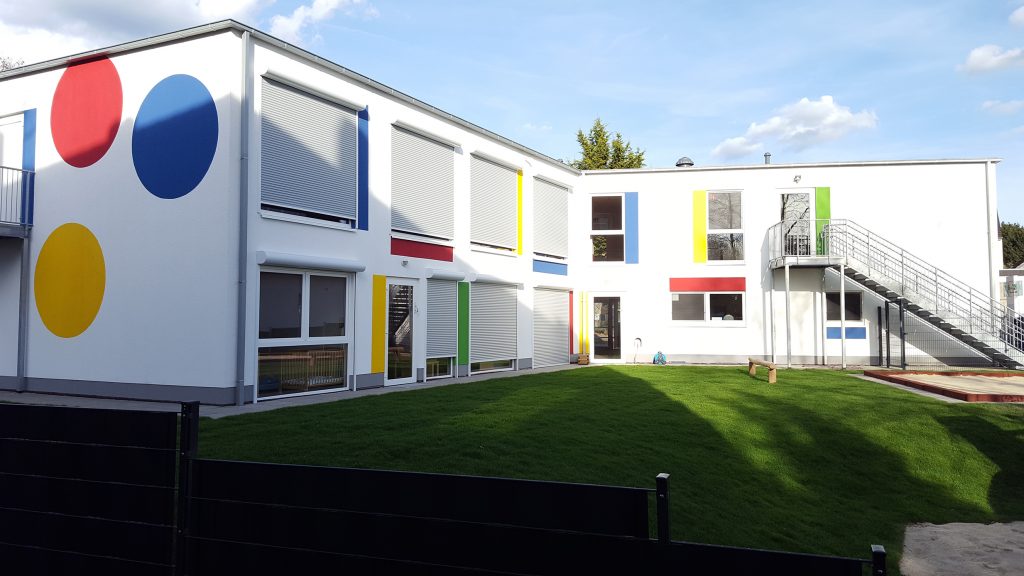Following
the acquisition of a portfolio of day nurseries in Saxony six months
ago, Warburg-HIH Invest Real Estate (“Warburg-HIH Invest”) now acquired
another four day-nurseries
under development in North Rhine-Westphalia (“NRW”). Two additional acquisitions are in an advanced planning stage. The properties will be held in the “Warburg-HIH
Zukunft Invest“ fund, the company’s new open-ended
special AIF. Once the property development is completed, the fund will
thus own ten day-nurseries worth a combined investment volume of more
than 45 million euros. The fund volume target is
100 million euros. When fully invested, the fund will include about 20
assets. The fund envisions a stable cash-on-cash yield of 4.0 to 5,0
percent annually.
The properties in Saxony consist of two new-build and two existing
buildings with a gross lettable area of 7,500 square metres. One of
these two new buildings will be completed by the end of this year, the
other asset is scheduled for completion by the end
of 2021. The properties are let on 25-year leases.
The assets acquired in NRW represent four day-nursery developments that
are being implemented by developer TERRA Projektentwicklung. The
properties are located in Bochum (two assets), Duisburg and Oberhausen.
Providing a total of 395 childcare spots, they are
or will be occupied on 30-year terms leases by Step Kids Education
(Stepke), a blue-chip sponsor. Stepke operates a total of 25
day-nurseries in Germany.
The facilities are scheduled for completion between the fourth quarter of 2021 and year-end 2022.
NRW counts among the German states with the greatest shortfall in child care spots.
The
care gap describes the difference between the demand rate (i. e. the
number of spots actually needed) and the care ratio (i. e. the number of
children actually looked after). It amounts
to 19 percent in NRW, the widest gap of any state except Bremen (20.2
percent). This documents the enormous present and future requirement for
daycare options for children of preschool age in NRW.
According to calculations done by the IW German Economic Institute in
Cologne, the shortfall in child care spots in Germany adds up to nearly
320,000 nationwide. And this even though cities and communities created
around 155,000 new day-care spots since 2014,
bringing the total up to 818,000 spots. The steady growth in the number
of women who accept gainful employment makes it reasonable to expect
the number of children requiring day care to keep going up. This in turn
translates into additional demand for childcare
facilities.

Pic credit : Terra Projektentwicklung
Source : Warburg HIH Invest Real Estate
 Le mie ricette per la real estate community
Le mie ricette per la real estate community